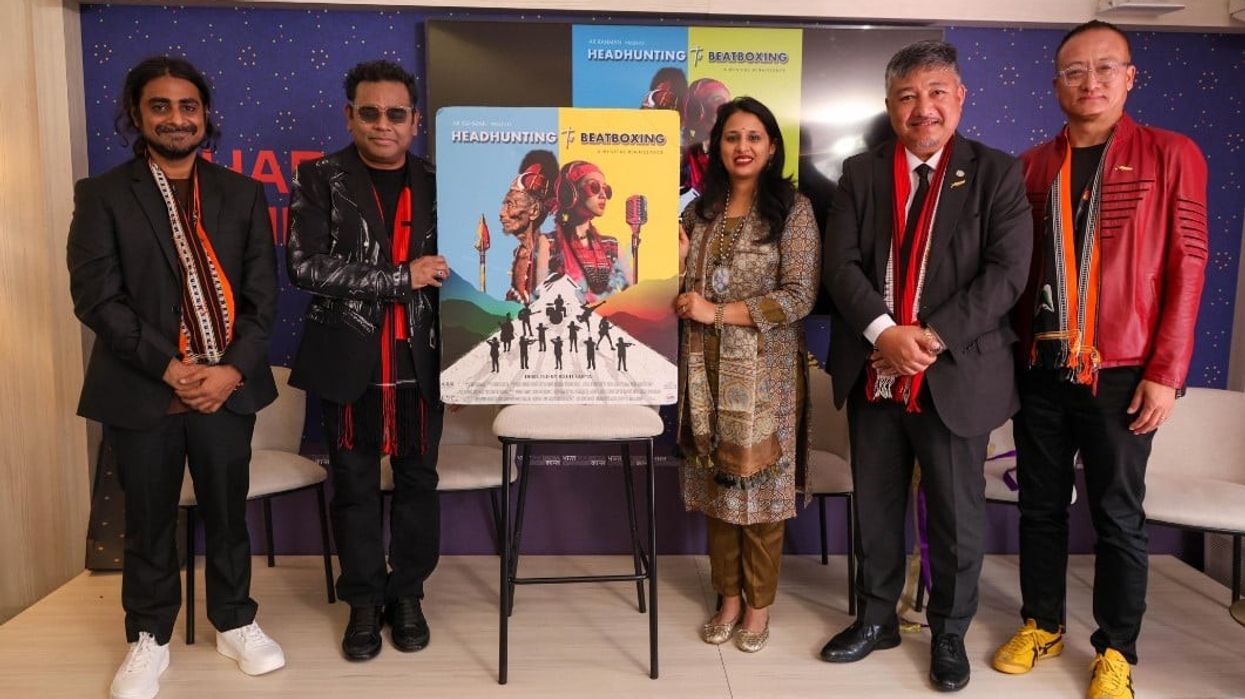Academy Award-winning composer AR Rahman has unveiled the first look and teaser of his latest venture, a feature documentary titled Headhunting to Beatboxing. The unveiling took place at the Bharat Pavilion at the 77th Cannes Film Festival.
Headhunting to Beatboxing, directed by Rohit Gupta and produced by AR Rahman, delves into the intriguing journey of rhythm and sound, charting music's growth throughout countries, tribes, and generations.
While talking about the feature documentary, Rahman said, “Music has this transformative power to change society and to connect and bring relevance to existence. Headhunting to Beatboxing is a celebration of this universal rhythm that unites humanity in its diverse expressions. We look forward to the start of its film festival journey and what better than Cannes which celebrates cinema to make the first announcement on the film" said AR Rahman, expressing his enthusiasm.
From the ancient traditions of headhunting tribes to the musical renaissance in the state, the documentary promises to take audiences on an immersive and enlightening musical anthropological odyssey.
Present at the launch at the Bharat Pavilion in Cannes were Academy Award winner and Padma Bhushan recipient AR Rahman, director Rohit Gupta, Executive Producer Abu Metha (Advisor to the Chief Minister, Government of Nagaland), and Executive Producer Theja Meru (Chairman TaFMA, Government of Nagaland) in addition to the other guests and dignitaries present.
Abu Metha, Advisor to the Chief Minister, Government of Nagaland, shared, "The germ of the idea came up when AR Rahman visited Nagaland to be part of the legendary Hornbill Festival. We knew we had to be part of it. The film is a collaboration of many creative minds, especially the TaFMA, and masterfully captured by director Rohit Gupta. The real heroes are the musicians of Nagaland, who tell stories that go back to times immemorial and their music exemplifies the ambition of our youth."
"5 years in the making, the journey of this film has been a sort of metamorphosis for me. The rich and vibrant music today, transcending the scars of the past is something that truly blew me away during the making. I am excited to see audiences witness our hard work and the magic that exists in the music of Nagaland" added director Rohit Gupta.
The film marks Rahman's second major foray into the realm of filmmaking as a producer, with his earlier production being 99 Songs. Its executive producers include Abu Metha, Adam J. Greig, Theja Meru, Rohit Gupta, Sheila Houlahan, and Rohhit Daas.




